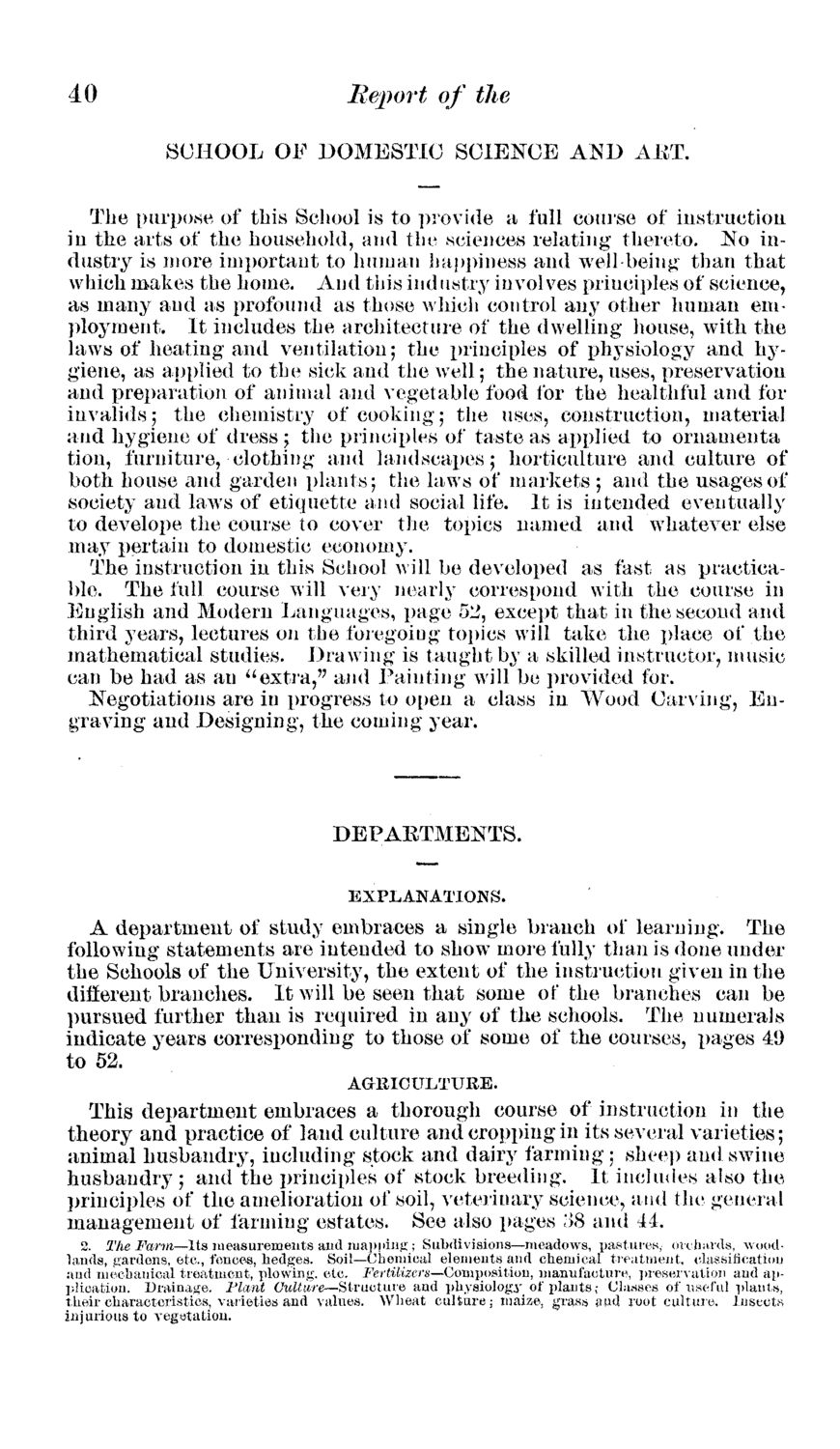| |
| |
Caption: Board of Trustees Minutes - 1874
This is a reduced-resolution page image for fast online browsing.

EXTRACTED TEXT FROM PAGE:
40 Report of the SCHOOL OF DOMESTIC SCIENCE AND AIvT. The purpose of this School is to provide a full course of instruction in the arts of the household, and the sciences relating thereto. No industry is more important to human happiness and well-being than that which makes the home. And this industry involves principles of science, as many and as profound as those which control any other human employment. It includes the architecture of the dwelling house, with the laws of heating and ventilation; the principles of physiology and hygiene, as applied to the sick and the well; the nature, uses, preservation and preparation of animal and vegetable food for the healthful and for invalids; the chemistry of cooking; the uses, construction, material and hygiene of dress ; the principles of taste as applied to ornamenta tion, furniture, clothing and landscapes; horticulture and culture of both house and garden plants; the laws of markets ; and the usages of society and laws of etiquette and social life. It is intended eventually to develope the course to cover the topics named and whatever else may pertain to domestic economy. The instruction in this School will be developed as fast as practicable. The full course will very nearly correspond with the course in English and Modern Languages, page 52, except that in the second and third years, lectures on the foregoing topics will take the place of the mathematical studies. Drawing is taught by a skilled instructor, music can be had as an "extra/ 7 and Painting will be provided for. Negotiations are in progress to open a class in Wood Carving, Engraving and Designing, the coming year. DEPAETMENTS. EXPLANATIONS. A department of study embraces a single branch of learning. The following statements are intended to showT more fully than is done under the Schools of the University, the extent of the instruction given in the different branches. It will be seen that some of the branches can be pursued further than is required in any of the schools. The numerals indicate years corresponding to those of some of the courses, pages 49 to 52. AGRICULTURE. This department embraces a thorough course of instruction in the theory and practice of land culture and cropping in its several varieties; animal husbandry, including stock and dairy farming; sheep and swine husbandry ; and the principles of stock breeding. It includes also the principles of the amelioration of soil, veterinary science, and the general management of farming estates. See also pages 38 and 44. 2. The Farm—Its measurements and mapping; Subdivisions—meadows, pastures, orchards, woodlauds, gardens, etc., fences, hedges. Soil—Chemical elements and chemical treatment, classification aud mechanical treatment, plowing, etc. Fertilizers—Composition, manufacture, preservation and application. Drainage. Plant Culture—Structure and physiology of plants; Classes of useful plants, their characteristics, varieties and values. Wheat culture; maize, grass and root culture. Insects injurious to vegetation.
| |